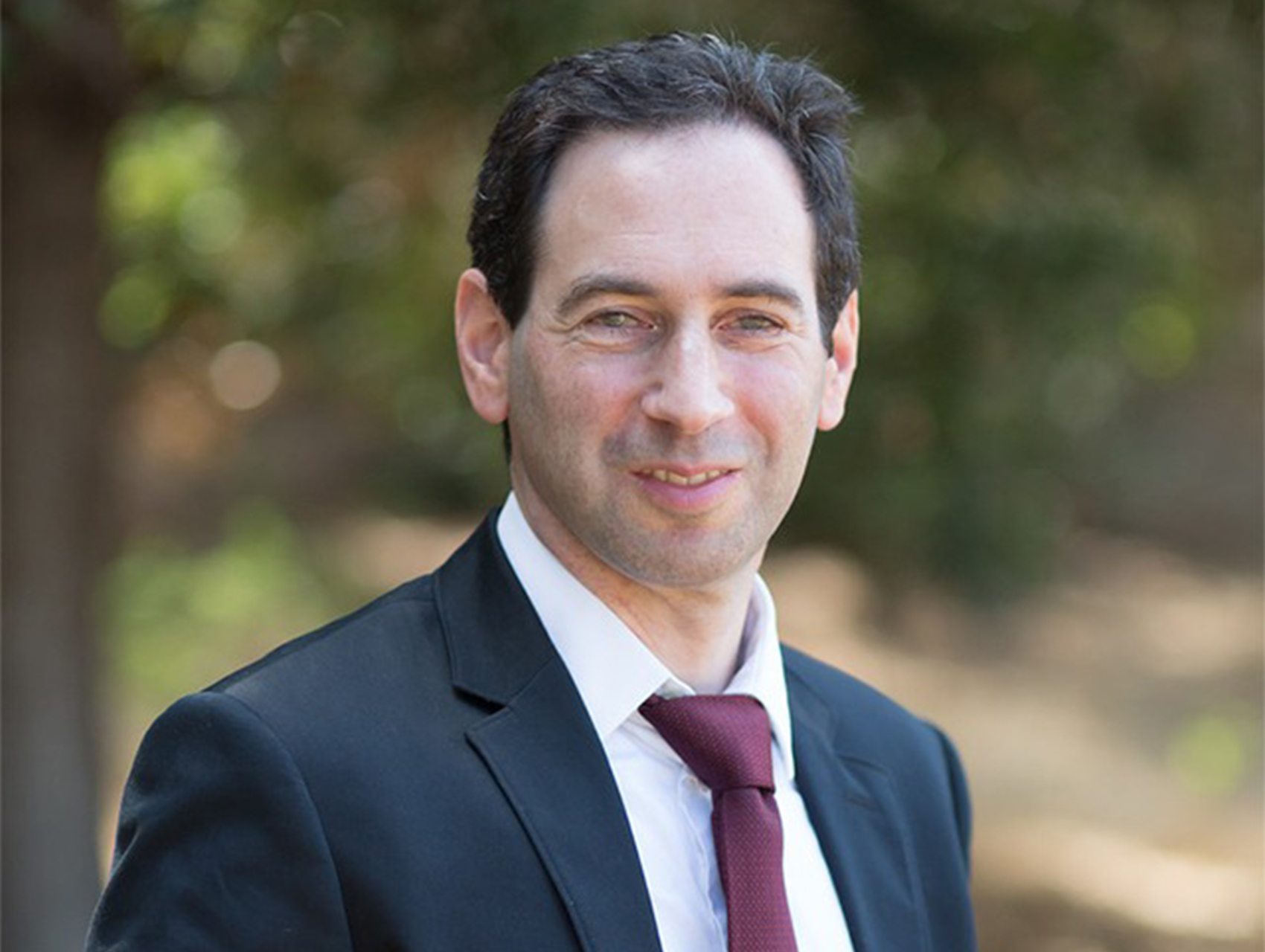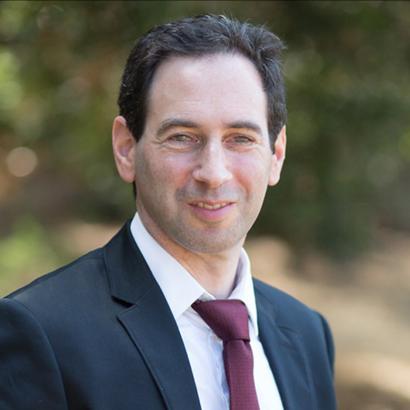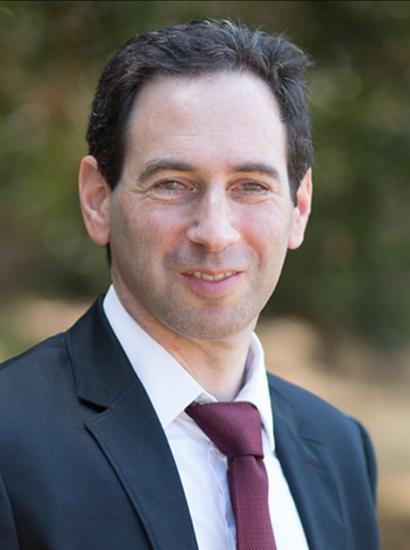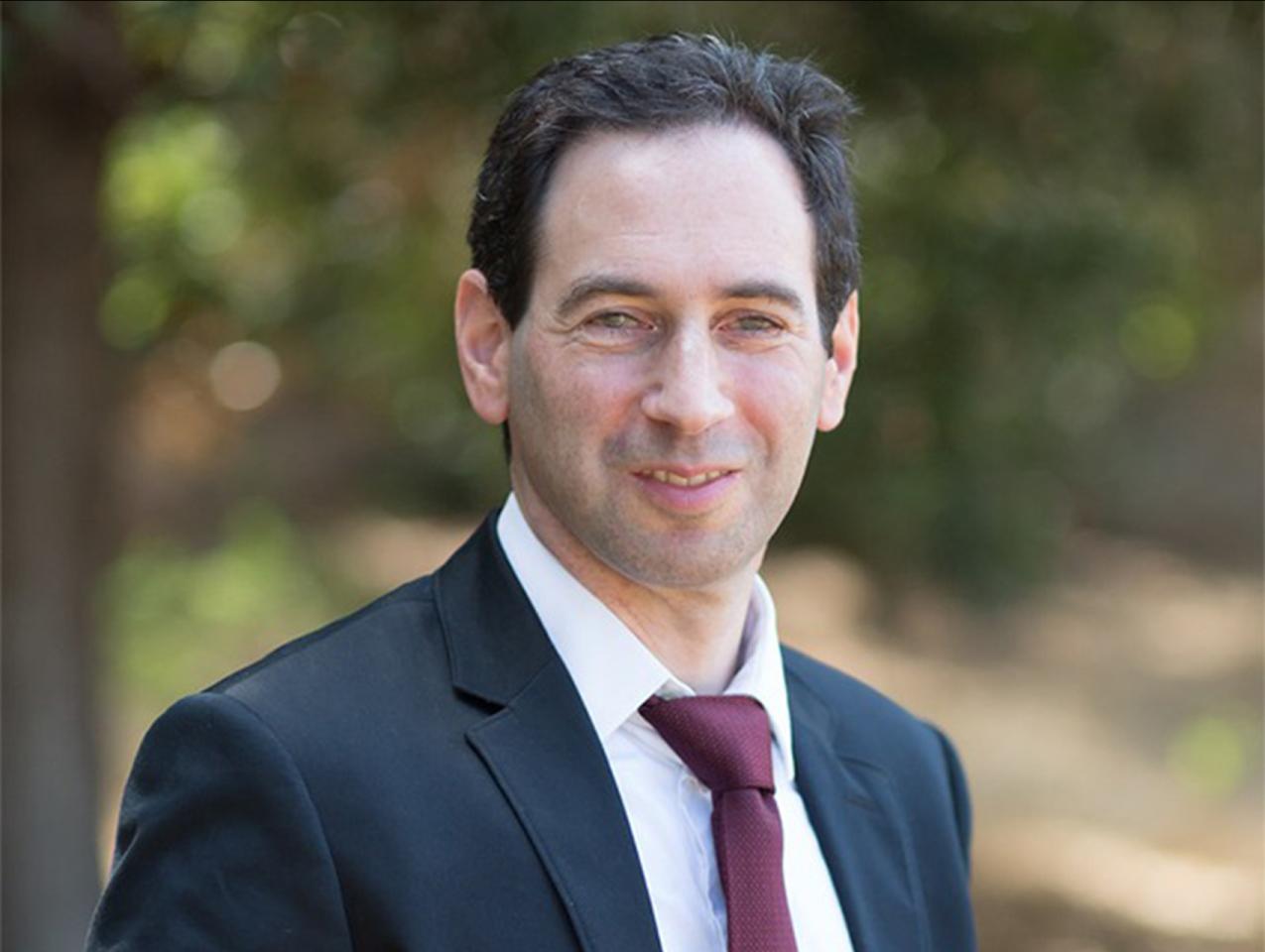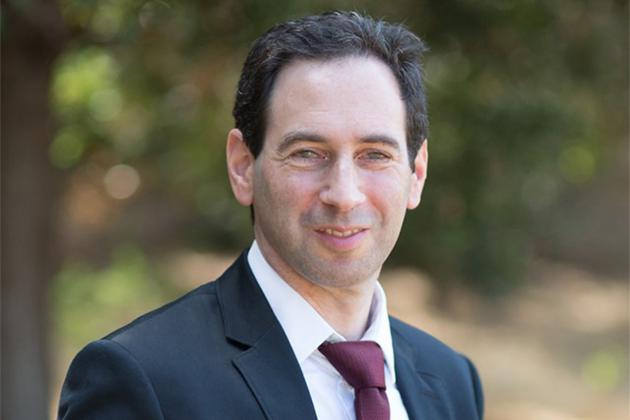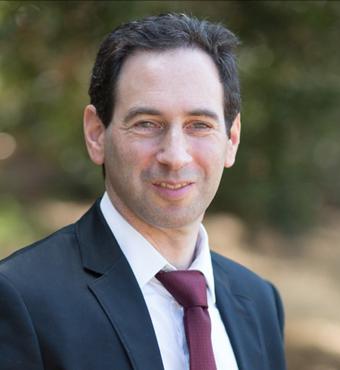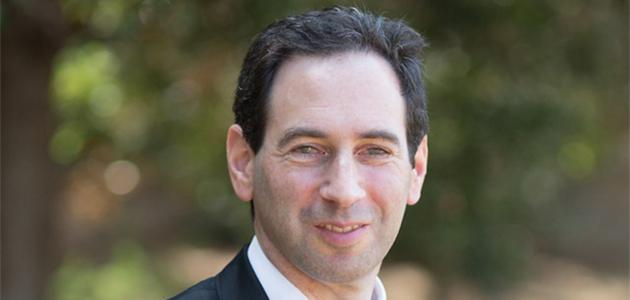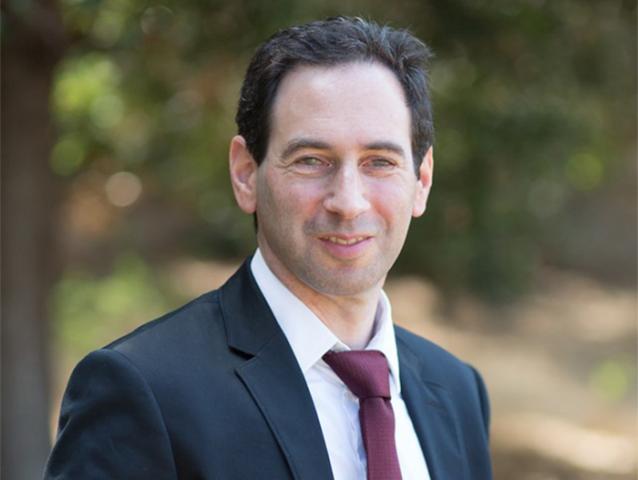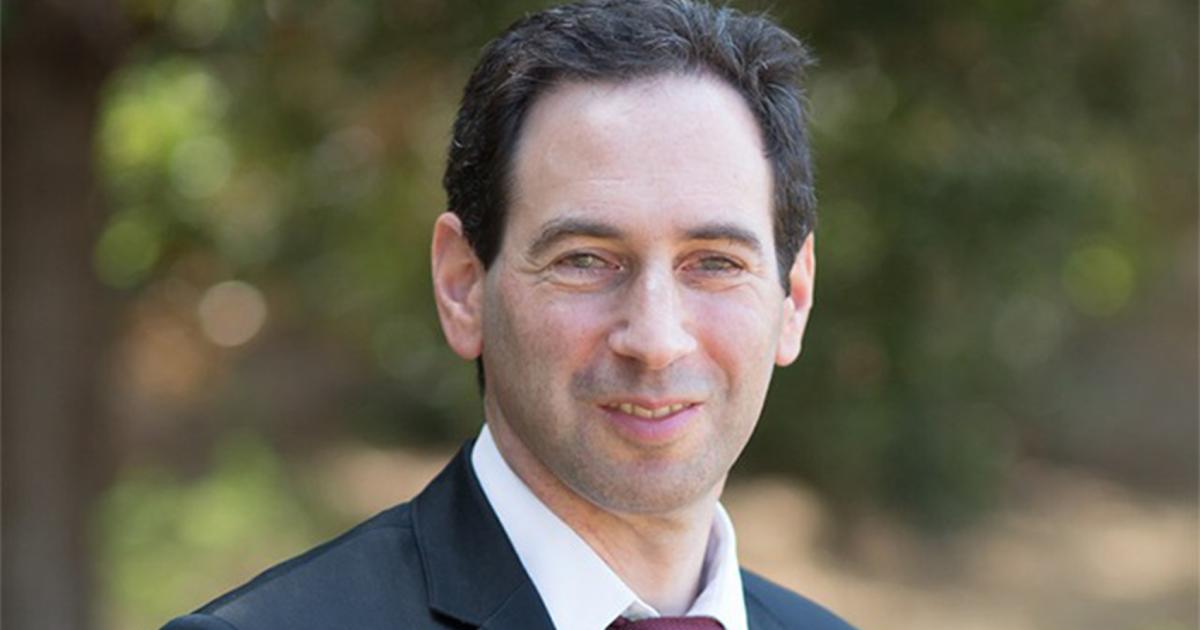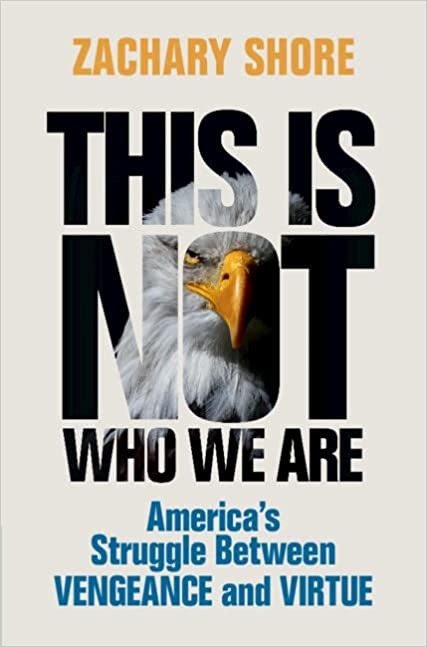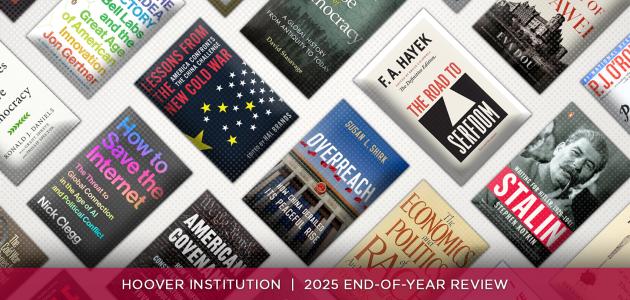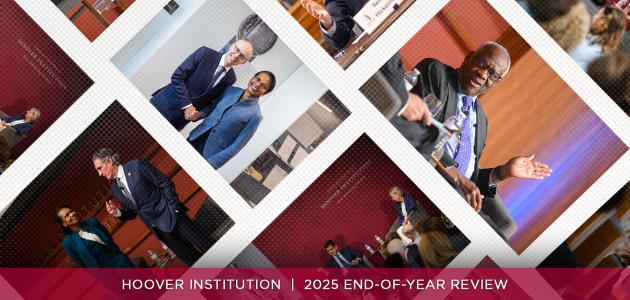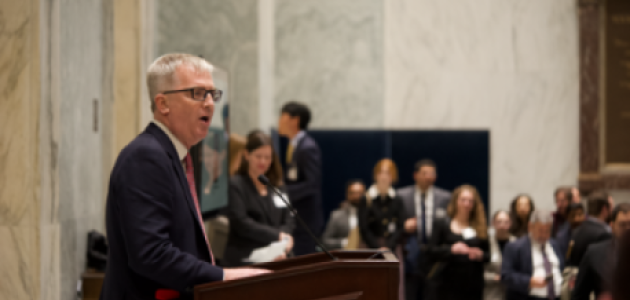By Jonathan Movroydis
In this Q&A, National Security Visiting Fellow Zachary Shore discusses his new book, This Is Not Who We Are: America’s Struggle Between Vengeance and Virtue (Cambridge University Press, 2023).
The book, he explains, is about understanding the roots of good judgment in foreign policy. Providing a series of case studies from World War II and its aftermath, he illustrates that when the United States exacted vengeful and excessively punitive measures against its adversaries, the consequences were disastrous. He explores how the majority of Americans and key officials favored mercy over revenge, and yet a minority managed to push their vengeful policies through.
Conversely, Shore shows how Americans, in seeking atonement for these destructive policies, later pursued merciful treatment of their former foes.
In his research at the Hoover Institution Library & Archives, Shore also discovered details of Herbert Hoover’s survey of destruction and famine in Europe following the Second World War. The suffering Hoover saw firsthand prompted him to organize an extensive campaign to address a food crisis that was impacting not only Europe but much of the world at the time. As Shore explains in this interview, throughout these efforts, Hoover stressed that instead of enacting vengeful policies, in particular against the Germans, Americans should live up to their values and uplift their former foes.
Why did you write this book?
Zachary Shore: I started out writing a book on wisdom, and it morphed into a book about vengeance, so the end product is not what I was expecting. Sometimes books take on a life of their own. But I really wanted to understand the roots of good judgment in foreign policy. So I started studying the Marshall Plan, which I believe is an excellent example of wisdom in world affairs.
I realized that the Marshall Plan was the reversal of an earlier policy called the Morgenthau Plan, which was in place during the Allied occupation of Germany for the first two and a half years after the Second World War. This was a vengeful policy, with disastrous consequences.
What was the Morgenthau Plan?
Zachary Shore: Henry Morgenthau Jr. was the secretary of the Treasury and the only Jewish member of President Franklin Delano Roosevelt’s cabinet. He was a very successful and savvy Washington operator who wanted to have influence in a lot of different areas of public policy, one of which was the occupation of postwar Germany. His plan was to deindustrialize Germany, to strip away all the modern factories and machinery, so that it could never again produce weapons of war.
Many officials within the Roosevelt administration tried to stop the plan, because they realized that the process of returning Germany to an agrarian state would lead to mass starvation. The plan was watered down a bit, but it still proved extremely harsh. Many people did end up dying of starvation.
How did the US government reverse course and adopt the Marshall Plan?
Zachary Shore: The US policy that Morgenthau had shaped was so harsh and cruel because it forbade US occupiers from helping the Germans to rebuild. General Lucius Clay was the American commander who oversaw the US occupied zone. In a 1975 interview, Clay reflected that under the restrictions imposed on US occupation forces, reconstruction was impossible, saying, “If you followed it literally you couldn’t have done anything to restore the German economy.”
Clay said that he flouted orders and tried to at least skirt the policy itself to provide food and support for suffering Germans, many of them children. The policy also made little practical sense. American taxpayers were sending money to Germany while US leaders weren’t allowing that country to get on its own feet. And Germany was the driver, and still is in many ways, of a prosperous, vibrant Europe. As the former president Herbert Hoover quipped, “We can keep Germany in these economic chains, but it will also keep Europe in rags.”
The subtitle of your book is America's Struggle Between Vengeance and Virtue. It seems that all countries have grappled with this struggle. But what is unique about America’s struggle?
Zachary Shore: I don't argue that America is unique in its goodness, of course. No one should say that one country is good and another bad. Countries are just collections of individuals and organizations and institutions that do good and bad things over time. Americans in the 1940s, and I think many times throughout their history, have seen themselves as a uniquely noble people. As evident from many of the writings and speeches produced in the period, many political leaders were very fond of saying, “The Americans, we are a fair-minded people.”
Before Pearl Harbor, a group of Americans even formed what they called the “Fair Play Committee,” which advocated for the just treatment of Japanese Americans.
Many people felt that certain policies the US government was pursuing during and after the war did not live up to those ideals. And that is when you heard them saying, in so many words, “This is not who we are.” And that is what this book is about, this struggle between different factions in the US, those who sought more vengeful policies and those who said, “Remember, we’re a people of fair play, and we need to live up to that ideal.”
The theme of part one in the book is about America’s struggle with vengeance. In the case of the Morgenthau Plan, you explain that Americans were broadly against this policy, as were many top leaders, including the aforementioned General Lucius Clay. But if Americans were broadly against these and other policies, why did the government carry them out?
Zachary Shore: That’s the key question that I address in part one. What I found was that the people who supported vengeful policies were very well coordinated, and they often orchestrated their efforts to get those policies implemented. Meanwhile the opponents of these policies were disparate, disconnected, and failed to work in concert. Had they done so, they very possibly could have blocked those vengeful policies.
There was a famous Gallup poll taken just a few days after the announcement of the dropping of the nuclear bomb on Hiroshima that showed 85 percent of the American public supporting that decision. What I point out in the book is that almost no Americans had any idea what a nuclear bomb was, mainly because one had never existed. It was presented to them as just a really big bomb.
Another Gallup poll, taken just a few months before the bomb was dropped, asked, “Would you support the use of poison gas against the Japanese if it would shorten the war?” Nearly half of Americans said no, and only 40 percent said yes. Now, 40 percent is still high, but it is not a majority.
How is it possible that Americans could have opposed the use of poison gas yet supported a far more deadly, horrific, and long-term devastating nuclear attack? I don’t believe it is. And as Americans learned more over time about the level of death and destruction the bomb brought on Japanese society, support for that decision has steadily eroded.
In your study, what did you learn about the different ways Americans have sought atonement for destructive policies?
Zachary Shore: The second part of my book is about the different ways that Americans tried to pursue more merciful treatment of their former foes in the face of opposition. Aside from abandoning the Morgenthau Plan in favor of the Marshall Plan, there were other instances in which Americans exemplified merciful behavior in atonement for past actions.
One of them was a movement to atone for the atomic bombs dropped on Japan that started with a Presbyterian minister in Virginia and then spread to churches across America. When the movement reached the higher body of the Federal Council of Churches, it developed into a plan to build an International Christian University on the outskirts of Tokyo. I have been to that university and conducted research in its archives. It’s an impressive place. That is one concrete example of a way that Americans wanted to contribute.
I understand that you also did research for the book at the Hoover Library & Archives. Can you tell us what you discovered there?
Zachary Shore: I didn't realize before doing this research just how active and involved Herbert Hoover was in post–World War II policies and relief. Not only was he crucial in drawing America's attention to the global food crisis that existed after World War II, he also had some concrete influence on policy. One useful set of documents I found in the archives is the diaries of Hoover’s confidant Hugh Gibson, who had served as US ambassador to Belgium in the 1930s. Gibson traveled with Hoover all across Europe in 1946 and 1947, surveying a famine that was sweeping across many parts of the world following the war. Think about all the destruction caused by World War II—roads, bridges, canals, machinery, and work animals were bombed and destroyed. This devastation inhibited food production and transportation to cities and was causing mass starvation.
This experience led Hoover to organize one of the largest humanitarian relief campaigns in history. It was an extraordinary effort. What we find in the archives document the details of what it looked like to be traveling through Europe and seeing not just suffering but the brutality committed by the Soviet Union in the parts of Eastern Europe that it was occupying.
When he returned from his survey trips, Hoover would give talks to audiences around America to raise awareness and persuade people to sacrifice and help starving people around the world.
When he talked about Germany, he said, "Our flag flies over this area. We do not want to preside over a nation of Buchenwalds." What he meant, of course, was that we can't be occupiers that are as cruel as the Nazis were to their prisoners. We must lead by example. We must live up to our virtues and make sure that we uplift people, feed them, see that they're clothed, see that they can rebuild, and help them in every way to get back on their feet.
What are some of the surprises that you learned when researching and writing this book?
Zachary Shore: There were so many. One of them, as I just mentioned, was the extent of Herbert Hoover’s involvement in post–World War II humanitarian relief and policy formation. He actually had influence, inadvertently, over Truman’s decision to drop the bomb. That is a story I tell in the book.
But another surprise was the role of First Lady Eleanor Roosevelt, which was the opposite of what I had expected. It turns out that Eleanor Roosevelt supported the dropping of nuclear bombs on Japan as well as the vengeful Morgenthau Plan, probably because she and FDR were very close friends with Morgenthau and his wife. She also publicly supported the internment of Japanese Americans and Japanese nationals, even though that policy did not reflect her actual beliefs. As the wife of the president, she could not openly protest her husband’s administration.
Eleanor Roosevelt gave a national radio address in which she explained that people of Japanese origin would be moved from their homes on the West Coast and into what were in effect concentration camps. She acknowledged that some “friendly aliens” would have to suffer temporarily to ensure the vital interests of the nation. It was a substantial downplaying of the four-year ordeal inflicted on 120,000 people, most of whom were American citizens.
What lessons can readers take from our history as described in your book, especially in terms of how we support and influence our leadership’s policy decisions?
Zachary Shore: I think there are many. One would be when a government is pursuing cruel policies that inflict needless suffering on others, whether actual or perceived enemies, people need to speak up and oppose such actions. There are many others, but that is the most important one.







